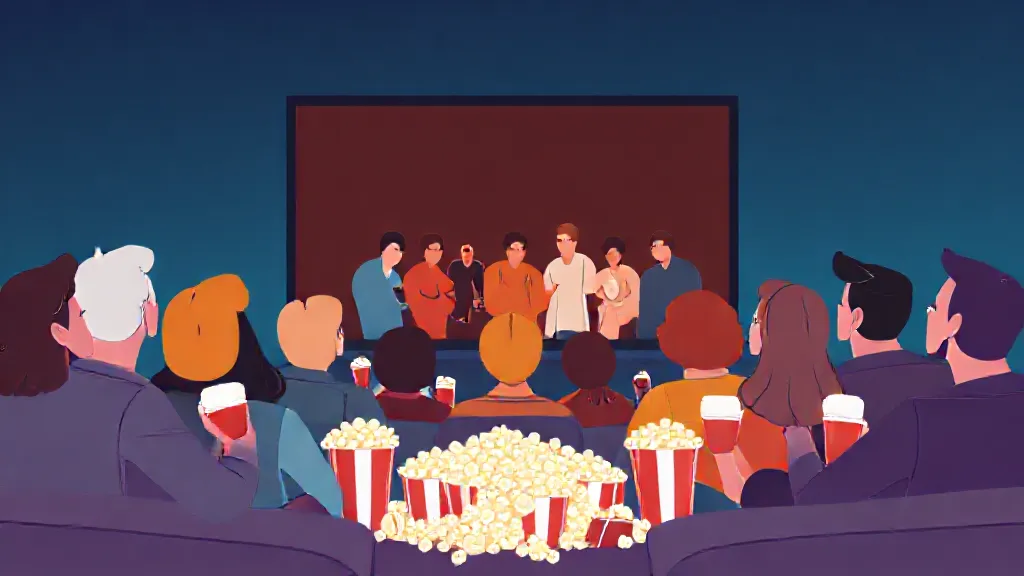In recent years, limited series have surged in popularity, captivating audiences with their unique storytelling and concise formats. Unlike traditional television shows that can extend for multiple seasons, limited series typically consist of a single season with a definitive conclusion. This format allows creators to craft tightly woven narratives that deliver impactful storytelling without the filler that often plagues longer series.
The appeal of limited series can be attributed to several factors, including viewer preferences, production quality, and the changing landscape of media consumption.
The Shift in Viewer Preferences
Today's audiences are increasingly drawn to content that respects their time and attention. With the average viewer bombarded by an overwhelming amount of media, the succinct nature of limited series provides a refreshing alternative.
Viewers no longer need to commit to multiple seasons to experience a complete story; they can engage with a narrative that is both fulfilling and easily digestible. This shift has been reflected in the success of shows like "The Queen's Gambit" and "Mare of Easttown," which have garnered critical acclaim and significant viewership, proving that audiences appreciate the depth and quality that limited series can offer.
High Production Values and Star Power
Another significant factor contributing to the rise of limited series is the high production values and the involvement of prominent talent.
Many limited series attract A-list actors, directors, and writers who are eager to work on projects that allow for creative freedom and artistic expression. For instance, the success of "Big Little Lies" can be attributed to its star-studded cast, including Reese Witherspoon and Nicole Kidman, as well as its compelling storytelling. The combination of top-tier talent and high-quality production elevates the viewing experience, making limited series an attractive option for both creators and viewers.
Streaming Services and Accessibility
The advent of streaming platforms has revolutionized how audiences consume media. Services like Netflix, Hulu, and HBO Max have embraced the limited series format, recognizing its potential to attract subscribers and retain viewer interest. With the ability to binge-watch an entire series in one sitting, viewers can immerse themselves in a complete story arc without the prolonged wait typical of traditional television.
The accessibility of these platforms has made limited series a staple in modern entertainment, allowing for greater experimentation and innovation in storytelling.
Cultural Relevance and Timeliness
Limited series often tackle contemporary issues and cultural themes, making them particularly resonant with audiences. Shows like "When They See Us," which recounts the story of the Central Park Five, and "The Night Of," which explores the complexities of the criminal justice system, have sparked important conversations and reflections on societal issues.
This relevance enhances the appeal of limited series, as viewers are drawn to narratives that reflect their realities and provoke thought, allowing for a deeper connection to the material.
The Art of Storytelling
The limited series format encourages a more focused approach to storytelling. With a predetermined number of episodes, writers and creators can craft a narrative that is both coherent and impactful.
This structure often leads to more profound character development and intricate plots, as seen in series like "Chernobyl," which meticulously examines the events surrounding the nuclear disaster. The ability to tell a complete story within a limited timeframe allows creators to explore themes and characters in ways that resonate deeply with audiences.
Audience Engagement and Community
Limited series also foster a sense of community among viewers.
The anticipation surrounding a new limited series often leads to discussions and debates on social media platforms, creating a shared experience among fans. This communal aspect enhances viewer engagement, as audiences come together to analyze episodes, share theories, and celebrate their favorite moments. The ability to connect with others over a shared interest in a limited series can enhance the overall viewing experience, making it more enjoyable and memorable.
Future of Limited Series in Entertainment
As the entertainment landscape continues to evolve, the future of limited series looks promising. With their ability to deliver high-quality storytelling in a concise format, limited series are likely to remain a popular choice for both creators and audiences. As streaming platforms continue to invest in original content, we can expect to see more innovative and diverse limited series that push the boundaries of traditional storytelling.
This evolution will likely lead to even greater exploration of themes, genres, and formats, further solidifying the place of limited series in the entertainment industry.
Conclusion: A New Era of Storytelling
In conclusion, the popularity of limited series can be attributed to a combination of viewer preferences, high production values, accessibility through streaming services, cultural relevance, and the focused nature of storytelling. As audiences continue to seek meaningful and engaging content, limited series offer a compelling solution that resonates with modern sensibilities.
This format not only enriches the viewing experience but also paves the way for a new era of storytelling in entertainment, one that prioritizes quality and depth over quantity.
